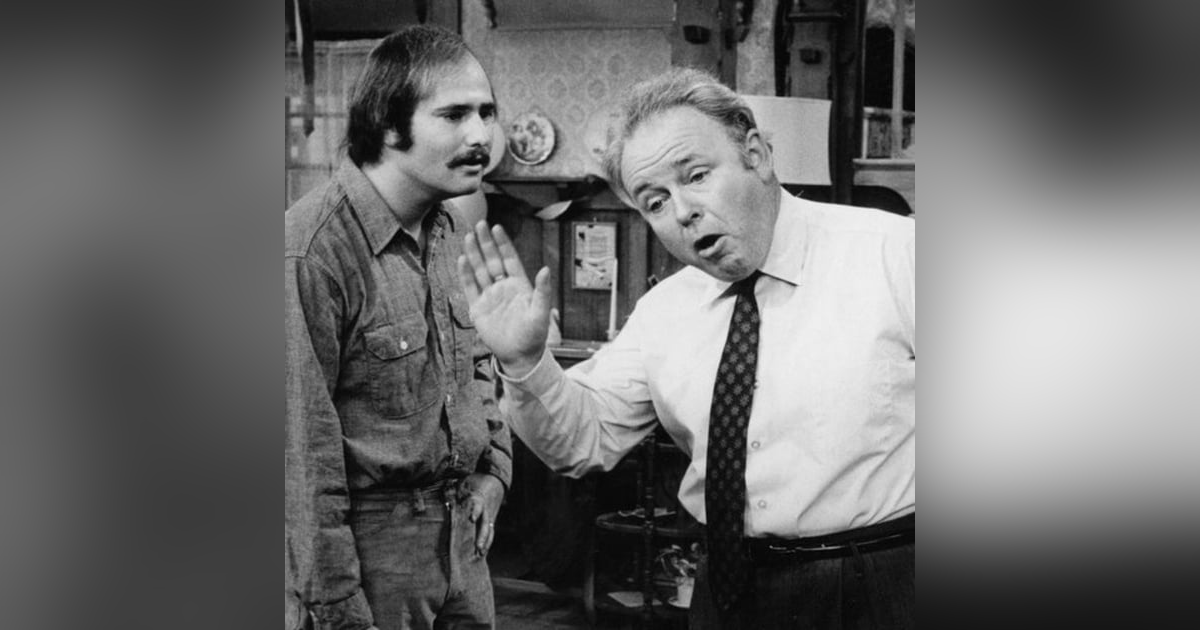333: A racist with a heart of gold is still a racist

This pandemic continues to reveal new aspects of relationships—or rather spending time with people does. I think we used to spend more time with people, not mediated by the internet or distracted by screens and other powered things.
I shared a new analogy in my conversation with my mom that several people liked. I found that my stewardship contrasting with my mom and step-father's wanting to live like they always have reminded me of the 70s television show All in the Family.
For those who don't remember it, the show garnered huge audiences and stellar reviews. From Wikipedia's page on it
All in the Family is an American television series that ran for nine seasons, from 1971, to 1979.
The show revolves around the life of a working-class father and his family. It broke ground on issues previously considered unsuitable for a U.S. network television comedy, such as racism, antisemitism, infidelity, homosexuality, women's liberation, rape, religion, miscarriages, abortion, breast cancer, the Vietnam War, menopause, and impotence [note not the environment]. Through these controversial issues, the series became one of television's most influential comedy shows, bringing dramatic moments and realistic, topical conflicts.
All in the Family is often regarded in the United States as one of the greatest television series in history. Following a lackluster first season, the show soon became the most watched show in the US during summer reruns and afterwards ranked number one in the yearly Nielsen ratings from 1971 to 1976. It became the first television series to reach the milestone of having topped the Nielsen ratings for five consecutive years. The episode "Sammy's Visit" was ranked number 13 on TV Guide's 100 Greatest Episodes of All Time. TV Guide ranked it as the number four comedy. Bravo named Archie Bunker, TV's greatest character of all time. In 2013, the Writers Guild of America ranked it the fourth-best written TV series ever.
Characters:
Archie Bunker: Frequently called a "lovable bigot", Archie was an assertively prejudiced blue-collar worker. A World War II veteran, Archie longs for better times when people sharing his viewpoint were in charge, as evidenced by the nostalgic theme song "Those Were the Days". Despite his bigotry, he is portrayed as loving and decent, as well as a man who is simply struggling to adapt to the constantly changing world, rather than someone motivated by hateful racism or prejudice. His ignorance and stubbornness seem to cause his malapropism-filled arguments to self-destruct
His foil was
Michael "Meathead" Stivic: Gloria's Polish-American hippie husband is part of the counterculture of the 1960s. While good-hearted and well-meaning, he constantly spars with Archie, and is equally stubborn, although his moral views are generally presented as being more ethical and his logic somewhat sounder. He is the most-educated person in the household, a fact which gives him a self-assured arrogance. He has intellectual belief in progressive social values.
So a major part of America saw the clash between a racist, sexist, bigot and an intellectual, more considered egalitarian. It worked in part because the two lived in a house together, leading America to see the values of two generations clash.
Looking back and even in that time, I think people recognized that Archie's views were unfair. He was racist and sexist, but you couldn't blame him. He was living values that made sense to him his whole life. A wife lived at home. He grew up in a white neighborhood. He fought to defend these ways and live in peace. Now these young people were undermining that peace. Why couldn't everyone just live how they used to when life worked? Those were the days.
Hosted on Acast. See acast.com/privacy for more information.







